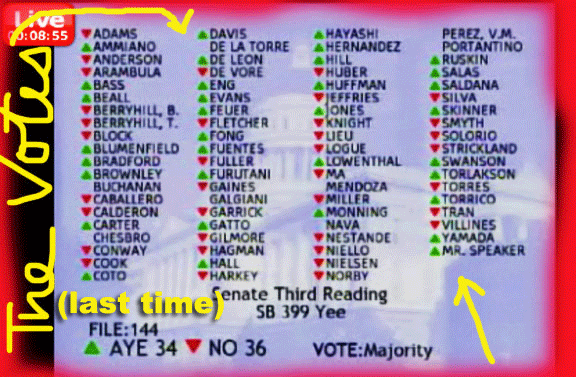The LA Times editorial board is rightly urging the California Democrats who sank the identical bill last time—for fear they would be labeled soft on crime—to “…look at the facts.” (What a novel idea!)
SB 9 is the proposed law that would give juvenile lifers a chance to be considered for a re-sentencing of 25-to-life, but only if they meet a pile of criteria and they couldn’t even apply for the possibility of re-sentencing until they’d served 15 years. Yet the bill, if passed, would, as the LA Times said, give some people who committed crimes when they were kids, a shot at getting paroled before they died.
There are several articles and/or editorials on the topic this weekend—CNN and the Ventura Star among them and a Sac Bee Op Ed by former speech writer Peggy Bangs (who dislikes the bill) among them—but the Times editorial is the best one. Here is a clip:
….California currently has 295 people serving non-parolable sentences for crimes they committed in their youth. Most were involved in homicides, but about 45% of them never pulled the trigger; they were convicted because they acted as lookouts or were involved in a concurrent crime when the homicide took place, usually at the hands of an adult accomplice. Underscoring the barbarity of the no-parole sentences is the fact that the actual killer often serves a shorter sentence or at least is eligible for parole.
Most other states [including Texas], and every other nation in the world, have rejected juvenile life-without-parole sentences because they recognize the basic truth that juveniles are fundamentally different from adults. Their brains are less developed. They are less able to control their impulses. They are less capable of moral reasoning. They have less emotional power to resist peer pressure. They have a greater capacity to be rehabilitated, if given the chance.
They still should be held responsible for heinous crimes, and even sentenced to life in prison if appropriate. But the chance to get out provides a sliver of hope and a reason for self-improvement. Prison culture often rewards bad behavior, and youths who are locked up for life have less incentive to rehabilitate if they know they’ll never be released. Giving these offenders hope for a future has the additional benefit of improving prison safety…..
Above you’ll find a list of the way California assemblypersons voted last time the bill came up for a vote. The Senate passed it, but the Assembly sank it 34 to 36. And a lot of the Assembly’s so-called progressives were among those responsible.


Thanks for this article. Do you have a list of how those democrats voted this time?